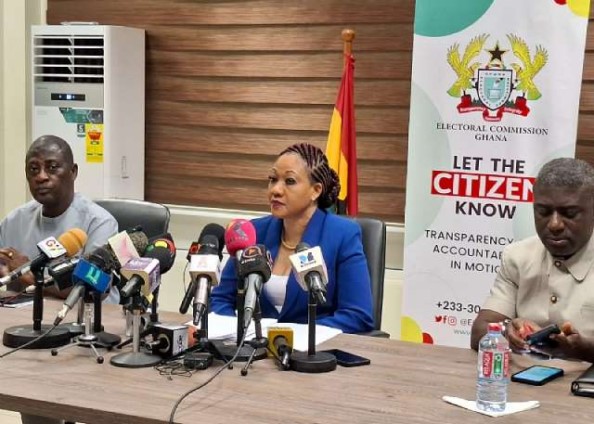
Chairperson of the Electoral Commission (EC), Madam Jean Mensa, has announced the introduction of a toll-free number to enable citizens to report concerns and complaints related to the ongoing elections.
Speaking during a media briefing at the EC Headquarters, Madam Mensa emphasized that the initiative underscores the Commission’s commitment to transparency, accountability, and inclusiveness in the electoral process.
“This toll-free number has been widely publicized, and we encourage all citizens to use it. We have a team of able men and women behind the phones, ready to address any issues or concerns in a timely manner,” she assured.
A Commitment to Responsiveness
Madam Mensa called on the public to actively engage with the EC through the hotline, describing the elections as a shared journey of accountability between the Commission and the citizenry.
The number is part of measures to ensure a seamless and credible election process.




